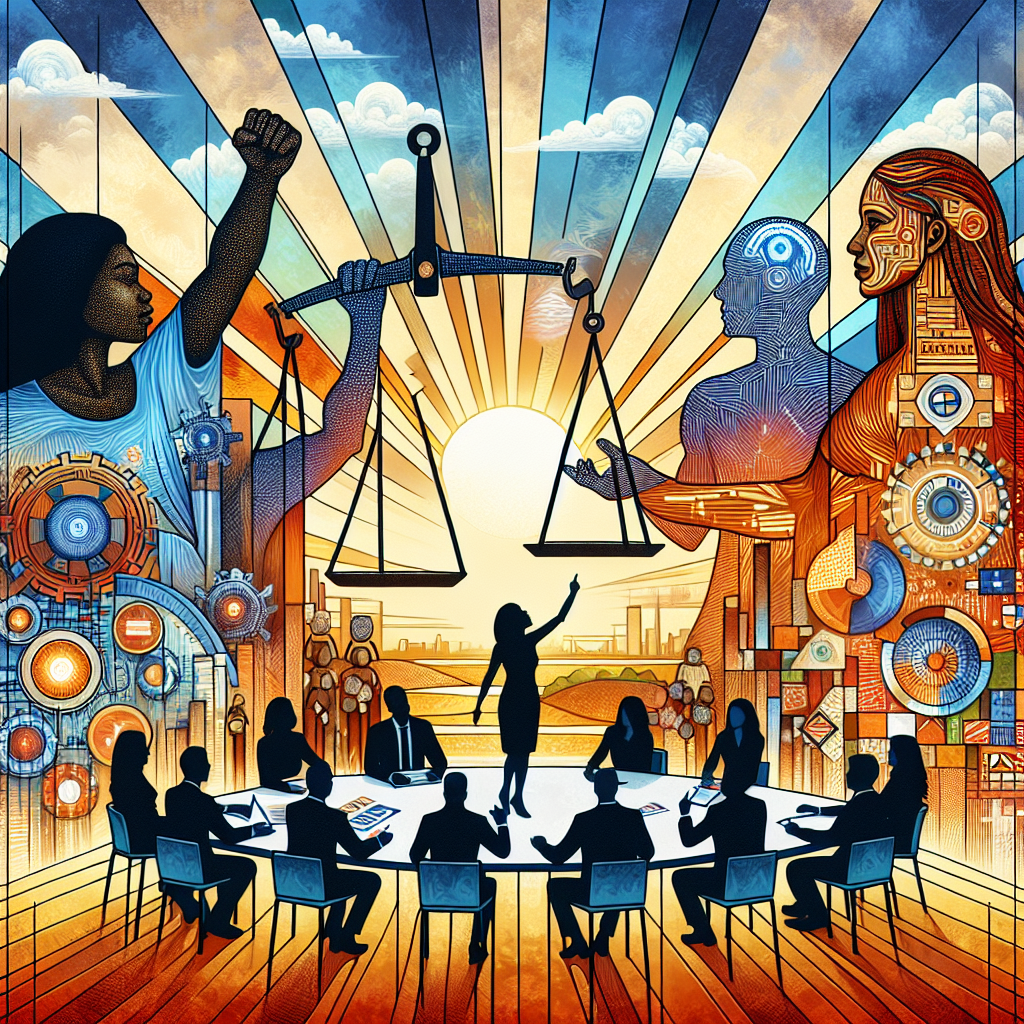In recent years, artificial intelligence (AI) has become increasingly prevalent in our daily lives, from the algorithms that power our social media feeds to the chatbots that help us navigate customer service inquiries. While AI has the potential to revolutionize industries and improve efficiency, there are also concerns about the unequal distribution of AI technologies and their potential to exacerbate existing inequalities.
Democratizing AI is a movement aimed at ensuring that AI technologies are accessible to all and that the benefits of AI are shared equitably. By democratizing AI, we can create a more inclusive and fair society where everyone has the opportunity to benefit from the transformative power of AI.
One of the key goals of democratizing AI is to ensure that AI technologies are accessible to individuals from all backgrounds, regardless of their socioeconomic status or level of technical expertise. This means making AI tools and resources more affordable and easier to use, so that individuals and organizations of all sizes can harness the power of AI to solve complex problems and drive innovation.
Another important aspect of democratizing AI is ensuring that AI technologies are developed and deployed in a way that is ethical and transparent. This includes addressing bias and discrimination in AI algorithms, ensuring the privacy and security of data, and promoting diversity and inclusion in the AI industry. By taking these steps, we can build trust in AI technologies and ensure that they are used in a way that benefits society as a whole.
There are several ways that we can work towards democratizing AI. One approach is to invest in education and training programs that teach individuals how to use AI technologies and develop AI solutions. By providing individuals with the skills and knowledge they need to work with AI, we can empower them to take advantage of the opportunities that AI presents.
Another approach is to promote open-source AI technologies that are freely available for anyone to use and modify. By making AI tools and resources open-source, we can democratize access to AI and encourage collaboration and innovation in the AI community.
Additionally, we can work to increase diversity and representation in the AI industry by supporting underrepresented groups and creating opportunities for individuals from diverse backgrounds to pursue careers in AI. By promoting diversity and inclusion in the AI industry, we can ensure that AI technologies are developed with a wide range of perspectives and that they benefit all members of society.
Overall, democratizing AI is a crucial step towards creating a more equitable world where everyone has the opportunity to benefit from the transformative power of AI. By investing in education, promoting open-source technologies, and fostering diversity and inclusion in the AI industry, we can ensure that AI technologies are used in a way that benefits all members of society.
FAQs:
Q: What are some examples of AI technologies that have been democratized?
A: One example of a democratized AI technology is TensorFlow, an open-source machine learning library developed by Google. TensorFlow is freely available for anyone to use and has been widely adopted by researchers, developers, and businesses around the world. Another example is OpenAI, a non-profit organization that develops AI technologies and makes them available to the public.
Q: How can individuals get involved in the democratization of AI?
A: Individuals can get involved in the democratization of AI by participating in open-source AI projects, attending AI education and training programs, and advocating for diversity and inclusion in the AI industry. By learning how to use AI technologies, contributing to open-source projects, and supporting efforts to promote diversity and inclusion, individuals can help democratize AI and ensure that AI technologies benefit all members of society.
Q: What are some challenges to democratizing AI?
A: One of the main challenges to democratizing AI is the unequal distribution of resources and opportunities in the AI industry. Individuals from underrepresented groups may face barriers to accessing AI technologies and pursuing careers in AI. Additionally, bias and discrimination in AI algorithms can exacerbate existing inequalities and limit the benefits of AI for marginalized communities. Overcoming these challenges will require investment in education, training, and diversity initiatives to ensure that AI technologies are accessible and beneficial to all members of society.

